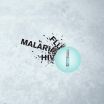(Press-News.org) (Millbrook, N.Y.) In the U.S., some 300,000 people are diagnosed with Lyme disease annually. Thousands also suffer from babesiosis and anaplasmosis, tick-borne ailments that can occur alone or as co-infections with Lyme disease. According to a new paper published in PLOS ONE, when small, fast-living mammals abound, so too does our risk of getting sick.
In eastern and central North America, blacklegged ticks are the primary vectors for Lyme disease, babesiosis, and anaplasmosis. The pathogens that cause these illnesses are widespread in nature; ticks acquire them when they feed on infected animals.
Richard S. Ostfeld, the paper's lead author and a scientist at the Cary Institute of Ecosystem Studies, has researched the ecology of Lyme disease since 1992. "A pattern emerged in our long-term studies. Ticks that fed on certain rodents and shrews were much more likely to pick up multiple pathogens, making the environment riskier for people."
To investigate why mammals differ in their 'reservoir competence' or ability to transmit pathogens to ticks, Ostfeld and his co-authors from Bard College, Oregon State University, the University of South Florida, and EcoHealth Alliance took a two-pronged approach.
First, they looked at life history traits for nine mammals known to harbor Lyme disease, babesiosis, and anaplasmosis. Attributes like body size, litter size, and life span were taken into consideration.
Then they looked at the role of mammal population density. As 'sit and wait' parasites, ticks are much more likely to encounter animals with dense populations. This, in turn, could help pathogens evolve to exploit specific hosts, resulting in more effective transmission rates.
For Lyme disease and anaplasmosis, fast life history features were a strong predictor of an animal's ability to transmit infection to ticks. Body size was inversely related to reservoir competence. Raccoon, skunk, opossum, squirrel, and deer infected fewer ticks than their mouse, chipmunk, and shrew counterparts.
Ostfeld notes, "This is consistent with past research on Lyme disease, West Nile virus, and Eastern Equine encephalitis. There is evidence that animals that mature early and have frequent, large litters invest less in some immune defenses, making them better pathogen hosts."
Population density was the best predictor of species' abilities to transmit all three pathogen groups, with animals that ticks encountered most frequently being the most effective at transferring infection. Co-author Felicia Keesing of Bard College explains, "Fast life history and high population density often go hand-in-hand. In rodents and shrews, pathogen adaptation and poor immune defense may be working together to amplify disease spread."
With Ostfeld concluding, "In our struggle to manage the ever-growing list of tick-borne diseases, we need to understand which animals magnify human disease risk. Our results suggest when generalist pathogens emerge, small mammals with large populations and a fast pace of life warrant careful monitoring."
INFORMATION:
Research and analyses were made possible through grants from the National Science Foundation's Divisions of Environmental Biology and Emerging Frontiers. To access the full paper, visit PLOS ONE.
The Cary Institute of Ecosystem Studies is a private, nonprofit environmental research organization located on 2,000-acres in New York's Hudson Valley. With a staff of more than 100, including 16 core scientists, it is a world-premier center for ecosystem science. Focal areas include freshwater ecosystems, disease ecology, invasive species, urban ecology, and biogeochemistry. The science program is complemented by the Cary Institute's renowned education, communication, and outreach initiatives. http://www.caryinstitute.org
Small, fast, and crowded: Mammal traits amplify tick-borne illness
Mice and shrews most effective at transferring Lyme disease and other pathogens to feeding ticks
2014-09-18
ELSE PRESS RELEASES FROM THIS DATE:
Curcumin, special peptides boost cancer-blocking PIAS3 to neutralize STAT3 in mesothelioma
2014-09-18
A common Asian spice and cancer-hampering molecules show promise in slowing the progression of mesothelioma, a cancer of the lung's lining often linked to asbestos. Scientists from Case Western Reserve University and the Georg-Speyer-Haus in Frankfurt, Germany, demonstrate that application of curcumin, a derivative of the spice turmeric, and cancer-inhibiting peptides increase levels of a protein inhibitor known to combat the progression of this cancer. Their findings appeared in the Aug. 14 online edition Clinical Cancer Research; the print version of the article will ...
A new way to prevent the spread of devastating diseases
2014-09-18
For decades, researchers have tried to develop broadly effective vaccines to prevent the spread of illnesses such as HIV, malaria, and tuberculosis. While limited progress has been made along these lines, there are still no licensed vaccinations available that can protect most people from these devastating diseases.
So what are immunologists to do when vaccines just aren't working?
At Caltech, Nobel Laureate David Baltimore and his colleagues have approached the problem in a different way. Whereas vaccines introduce substances such as antigens into the body hoping ...
LSU Health research discovers means to free immune system to destroy cancer
2014-09-18
New Orleans, LA – Research led by Paulo Rodriguez, PhD, an assistant research professor of Microbiology, Immunology & Parasitology at LSU Health New Orleans' Stanley S. Scott Cancer Center, has identified the crucial role an inflammatory protein known as Chop plays in the body's ability to fight cancer. Results demonstrate, for the first time, that Chop regulates the activity and accumulation of cells that suppress the body's immune response against tumors. The LSU Health New Orleans research team showed that when they removed Chop, the T-cells of the immune system mounted ...
NASA sees western edge of Tropical Storm Fung-Wong affecting Philippines
2014-09-18
The NASA-NOAA Suomi NPP satellite saw the western edge of Tropical Storm Fung-Wong over the central Philippines on Sept. 18. Fung-Wong developed on Sept. 17 as Tropical Depression 16W, and strengthened into a tropical storm by 5 p.m. EDT on Sept. 17.
When NASA-NOAA's Suomi NPP satellite passed over Tropical Storm Fung-Wong on Sept. 18 at 05:24 UTC and the Visible Infrared Imaging Radiometer Suite (VIIRS) instrument aboard captured a visible picture of the storm. The VIIRS instrument revealed that a thick band of powerful thunderstorms spiraled around the southwestern ...
Study provides insight about providing private mental health service to veterans
2014-09-18
A unique partnership to support private efforts to provide mental health services to veterans and their families could provide a model for similar efforts should federal officials decide to expand privately provided health care as part of reform of the VA health system, according to a new RAND Corporation report.
The Welcome Back Veterans Initiative, a joint project of philanthropic groups and major academic medical centers, has provided an array of patient care, education and other services to veterans and their families.
Backed by Major League Baseball and the Robert ...
Benefits of telecommuting greater for some workers, study finds
2014-09-18
CHAMPAIGN, Ill. — Even in a hyperconnected world where laptops, phones, tablets and now even wristwatches are tethered to the Internet 24/7, employers are still wary about the performance and social costs imposed by employees who work remotely.
But a new study by a University of Illinois business professor says telecommuting yields positive effects for two important measures of employee performance, and it can even produce very strong positive effects under certain circumstances for some employees.
According to Ravi S. Gajendran, a professor of business administration ...
Down syndrome helps researchers understand Alzheimer's disease
2014-09-18
MADISON, Wis. – The link between a protein typically associated with Alzheimer's disease and its impact on memory and cognition may not be as clear as once thought, according to a new study from the University of Wisconsin-Madison's Waisman Center. The findings are revealing more information about the earliest stages of the neurodegenerative disease.
The researchers — including lead study author Sigan Hartley, UW-Madison assistant professor of human development and family studies, and Brad Christian, UW-Madison associate professor of medical physics and psychiatry and ...
Research yields a game changer for improving understanding of Ebola and great apes
2014-09-18
A group of international scientists have developed a new method to study Ebola virus in wildlife. Video link here.
The Wildlife Conservation Society (WCS)-led research, published today in the journal PLOS Neglected Tropical Diseases, describes the use of fecal samples from wild great apes to identify populations likely to have been exposed to the virus. This represents a new tool for performing large, population-scale field assessments that can potentially change the way Ebola virus is studied and improve our understanding of the virus' distribution in space and time—a ...
Single dose of antidepressant changes the brain
2014-09-18
A single dose of antidepressant is enough to produce dramatic changes in the functional architecture of the human brain. Brain scans taken of people before and after an acute dose of a commonly prescribed SSRI (serotonin reuptake inhibitor) reveal changes in connectivity within three hours, say researchers who report their observations in the Cell Press journal Current Biology on September 18.
"We were not expecting the SSRI to have such a prominent effect on such a short timescale or for the resulting signal to encompass the entire brain," says Julia Sacher of the Max ...
Gambling with confidence: Are you sure about that?
2014-09-18
Cold Spring Harbor, NY – Life is a series of decisions, ranging from the mundane to the monumental. And each decision is a gamble, carrying with it the chance to second-guess. Did I make the right turn at that light? Did I choose the right college? Was this the right job for me?
Our desire to persist along a chosen path is almost entirely determined by our confidence in the decision: when you are confident that your choice is correct, you are willing to stick it out for a lot longer.
Confidence determines much of our path through life, but what is it? Most people ...
LAST 30 PRESS RELEASES:
Study finds gender gap in knee injuries
First ‘Bible map’ published 500 years ago still influences how we think about borders
Why metabolism matters in Fanconi anemia
Caribbean rainfall driven by shifting long-term patterns in the Atlantic high-pressure system, study finds
Potential treatment to bypass resistance in deadly childhood cancer
RSV vaccines could offer protection against asthma
Group 13 elements: the lucky number for sustainable redox agents?
Africa’s forests have switched from absorbing to emitting carbon, new study finds
Scientists develop plastics that can break down, tackling pollution
What is that dog taking? CBD supplements could make dogs less aggressive over time, study finds
Reducing human effort in rating software
Robots that rethink: A SMU project on self-adaptive embodied AI
Collaborating for improved governance
The 'black box' of nursing talent’s ebb and flow
Leading global tax research from Singapore: The strategic partnership between SMU and the Tax Academy of Singapore
SMU and South Korea to create seminal AI deepfake detection tool
Strengthening international scientific collaboration: Diamond to host SESAME delegation from Jordan
Air pollution may reduce health benefits of exercise
Ancient DNA reveals a North African origin and late dispersal of domestic cats
Inhibiting a master regulator of aging regenerates joint cartilage in mice
Metronome-trained monkeys can tap to the beat of human music
Platform-independent experiment shows tweaking X’s feed can alter political attitudes
Satellite data reveal the seasonal dynamics and vulnerabilities of Earth’s glaciers
Social media research tool can lower political temperature. It could also lead to more user control over algorithms.
Bird flu viruses are resistant to fever, making them a major threat to humans
Study: New protocol for Treg expansion uses targeted immunotherapy to reduce transplant complications
Psychology: Instagram users overestimate social media addiction
Climate change: Major droughts linked to ancient Indus Valley Civilization’s collapse
Hematological and biochemical serum markers in breast cancer: Diagnostic, therapeutic, and prognostic significance
Towards integrated data model for next-generation bridge maintenance
[Press-News.org] Small, fast, and crowded: Mammal traits amplify tick-borne illnessMice and shrews most effective at transferring Lyme disease and other pathogens to feeding ticks



